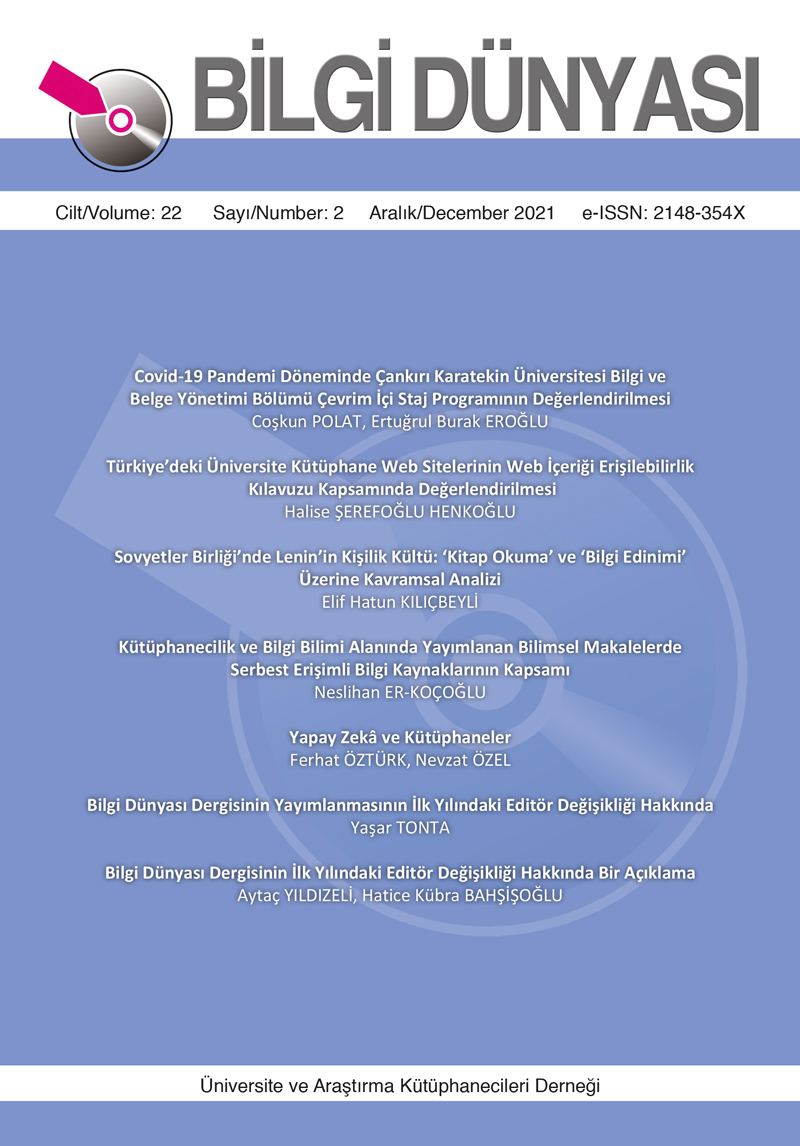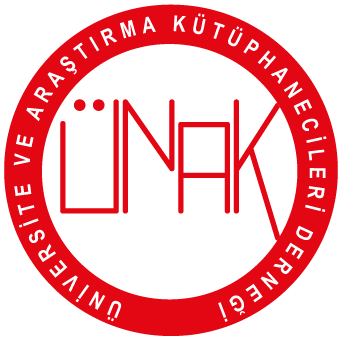Evaluation of Çankırı Karatekin University Information and Record Management Department Online Internship Program During the Covid-19 Pandemic Period
DOI:
https://doi.org/10.15612/BD.2021.601Keywords:
Covid-19, coronavirus, pandemic, global outbreak, online internship, department of information managementAbstract
In addition to ensuring the permanence of learning by transforming theoretical knowledge into practice, internship has an important place in university education in terms of familiarity with the business environment and professional experience before graduation. The main issue in internship practice is to see and experience the work and processes related to the discipline they study in. However, due to the Covid-19 epidemic of 2020, the institutions’ refusal to accept interns has hampered the appropriateness of the practices. Some departments seeking to not deprive students of the achievements of internship practices, applied online internship programs for a solution, as in theoretical courses. In this study, it is aimed to measure the effects on students of online internship practice of Department of Information Management, Çankırı Karatekin University, which was carried out as a result of the cancellation of the internship, which has an important place in Information Management education, during the pandemic. In this practice, which is carried out in cooperation with the two leading professional associations of the discipline, University and Research Librarians Association and Turkish Librarians Association, in a 4-week period, online seminars were given to 114 students by 30 speakers in 22 sessions on 5 main topics, including the skills transferred to students in face-to-face internship practice. In the study, which was planned to determine the attitudes of the students about the seminars, the situations of the sessions, speakers and the department were evaluated. In the study using descriptive method, at the end of the internship application, the results of the questionnaire applied to the students were evaluated by the “surveey” tool and it was understood that the students generally benefited from the program. Although there is no alternative to face-to-face internship, it has emerged that they defend the opinion that participation in such practices carried out due to force majeure is necessary. The study will be successful to the extent that such programs serve the awareness that planned and systematic implementation and broad participation with both the student and the institution are important.
Downloads
Published
How to Cite
Issue
Section
Copyright (c) 2022 Information World

This work is licensed under a Creative Commons Attribution 4.0 International License.






